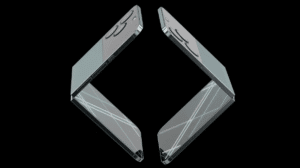The iPhone 17 series is shaping up to introduce significant hardware changes, particularly in thermal management. For years, Android manufacturers have implemented vapor chamber (VC) cooling systems in their devices to handle more demanding chipsets and mitigate thermal throttling. Apple, however, has stuck with traditional heat sink designs.
That approach could change with the iPhone 17 lineup, as reports suggest the tech giant plans to integrate vapor chambers across all models, including both Pro and non-Pro variants.

Vapor chambers are sealed components containing a small amount of liquid, usually de-ionized water, that evaporates when exposed to heat from the chipset. The vapor then spreads across the chamber, effectively dissipating heat before condensing back into liquid form. This technology offers a more efficient way to manage heat compared to conventional methods and is already a staple in high-end Android devices like the Samsung Galaxy and Google Pixel lines. The inclusion of this system in the iPhone 17 lineup could address lingering issues related to overheating, a recurring complaint with previous models.
Apple’s recent history with thermal management underscores the importance of this potential upgrade. The iPhone 15 series faced widespread reports of overheating, which were partially mitigated through a software update. The iPhone 16 introduced improved cooling mechanisms, including aluminum thermal substructures and graphene sheets, but some thermal challenges persisted during intensive use. By adopting VC cooling, Apple aims to provide more consistent performance during demanding activities such as gaming and video editing, while also reducing the device’s surface temperature under heavy loads.
Interestingly, this new report contradicts earlier predictions by renowned Apple analyst Ming-Chi Kuo, who claimed that only the iPhone 17 Pro Max would feature vapor chamber cooling alongside graphite sheets, with other models relying solely on graphite technology. The latest rumors suggest a broader implementation across the entire lineup, including the rumored iPhone 17 Air, an ultra-slim model expected to replace the Plus variant.
Thermal management has become a critical consideration for Apple as it incorporates more advanced technologies like artificial intelligence. The anticipated A19 chip in the iPhone 17 Pro models and the overall performance enhancements across the series will demand robust cooling solutions to prevent thermal throttling.
Although the reports from Chinese outlet MyDrivers provide intriguing insights, it’s essential to approach these claims with caution. MyDrivers has a limited track record with Apple rumors, and the company’s plans may evolve leading up to the iPhone 17’s expected September release.
(via MyDrivers)



